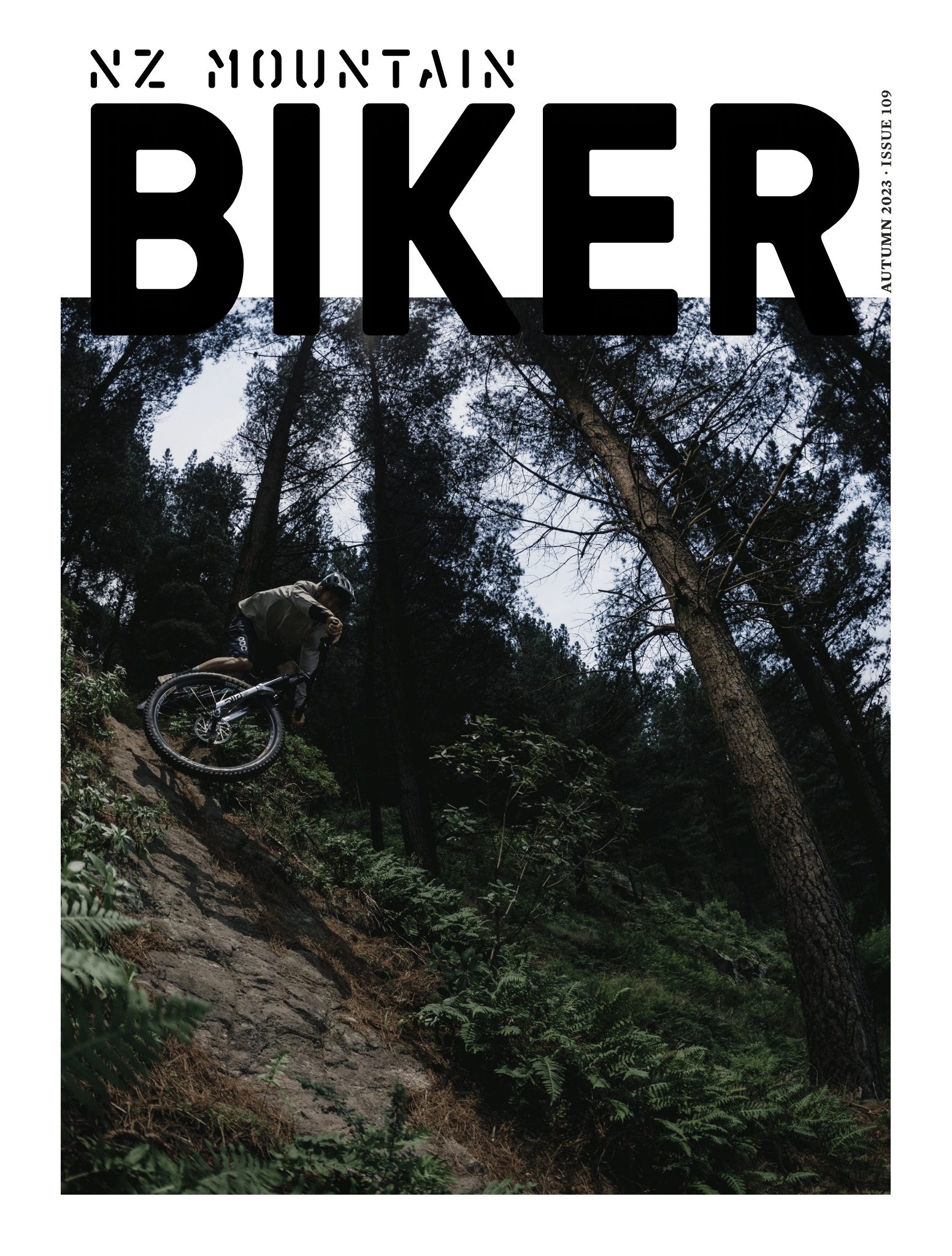Words: Lance Pilbrow
Photography: Cameron Mackenzie & Sven Martin
I’m two minutes into our Zoom interview and Sam is juggling kids on his lap. Prior to this, he’s been on another Zoom, negotiating deals that will form part of his 2023 season. Undoubtedly, his kids will have let his potential sponsors know that Sam, their dad, should really be giving them his undivided attention. But this is the new normal for Sam. The Juggle.
Most New Zealand Mountain Biker readers will be familiar with Sam Blenkinsop in some form or another. If longevity is a sign of success, then Sam could arguably be New Zealand’s most successful downhill mountain bike rider, having been riding professionally for 19 years. He’s been a fixture on the NZ riding scene for as long as many of us can remember. I personally remember watching Sam ride at the 2006 Rotorua World Mountain Bike Championships where he came second in the juniors. I was blown away by how fast he was riding and just how much style he had on the bike — his bike seemed to effortlessly drift through corners, through the air, always slightly sideways, slightly tweaked. Somehow, he made it look more fun than anyone else.
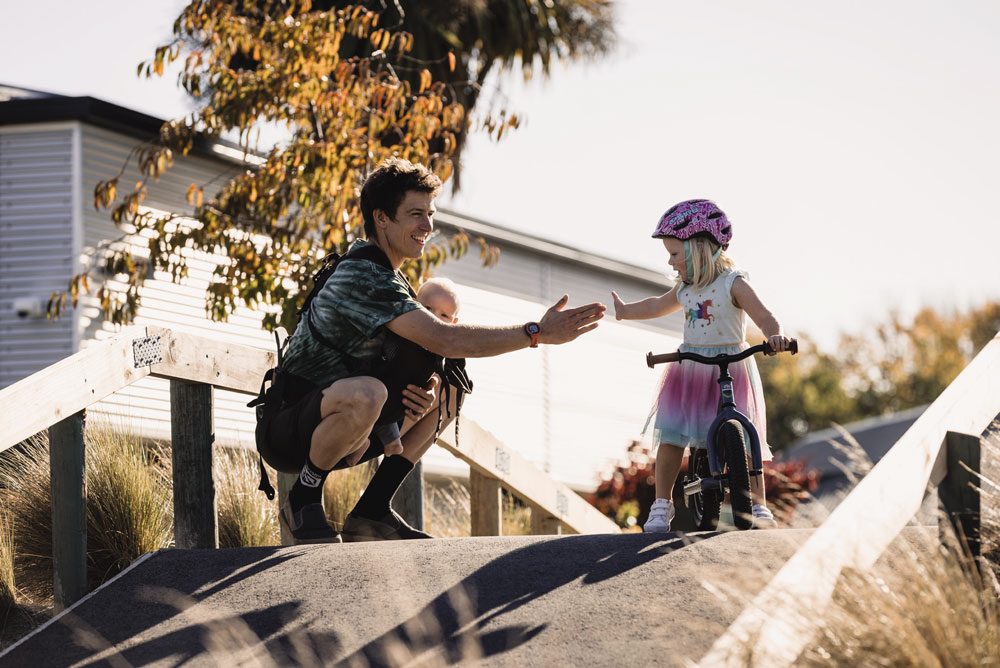
Fast forward to 2022 and Sam is now one of the seasoned veterans on the World Cup circuit. And a lot has changed over that time. Most notably, he now has a wife and two children to join him as he moves around the globe following the UCI circuit. With his experience on the circuit, and confidence to try something different, in 2022, he ditched the established way of doing things, bought a motorhome and hit the road racing; wife and two kids along for the ride too, as support crew. “We purchased a motorhome in the UK, and just drove the whole of Europe,” says Sam. “We did something like 9000km.”
Having recently toured New Zealand in summer with my own family, I’m well aware that life on the road isn’t always plain sailing. The idea of taking a family on the road, managing a race schedule and the pressure of performing at an elite level made me wonder if he’d had a few too many knocks to his head. But he assured me it was fine. How was it for his wife, Lysh, though? “It was hard for Lysh, for sure. She had to deal with our younger one in the motorhome; there is all the feeding. Yeah, it wasn’t aways easy,” explains Sam.
Sam’s kids come in and out of view on his webcam. In the background, I can hear some fighting over toys, and I’m imagining doing all of this inside the close confines of a motorhome — for six months. On the whole, it’s clear Sam, at least, had really enjoyed the past season.
“To be honest, it was awesome,” he admits. “It was just so exciting having the family there. It was like learning a new way of racing; racing while being a dad. It was more interesting than other years because I was going to all these places I’ve been to for 19 years, but I realised I actually never saw them properly. Typically, I’d just be with the team and at the hotel, and I wouldn’t really enjoy the place as much. Now, I’d be at practice, then as soon as that was done I’d go hang out with the family and really enjoy everything. It was great being with them and not just having the race as the only thing. It was like being on holiday with the family, but getting to race too, which was like an awesome bonus.”
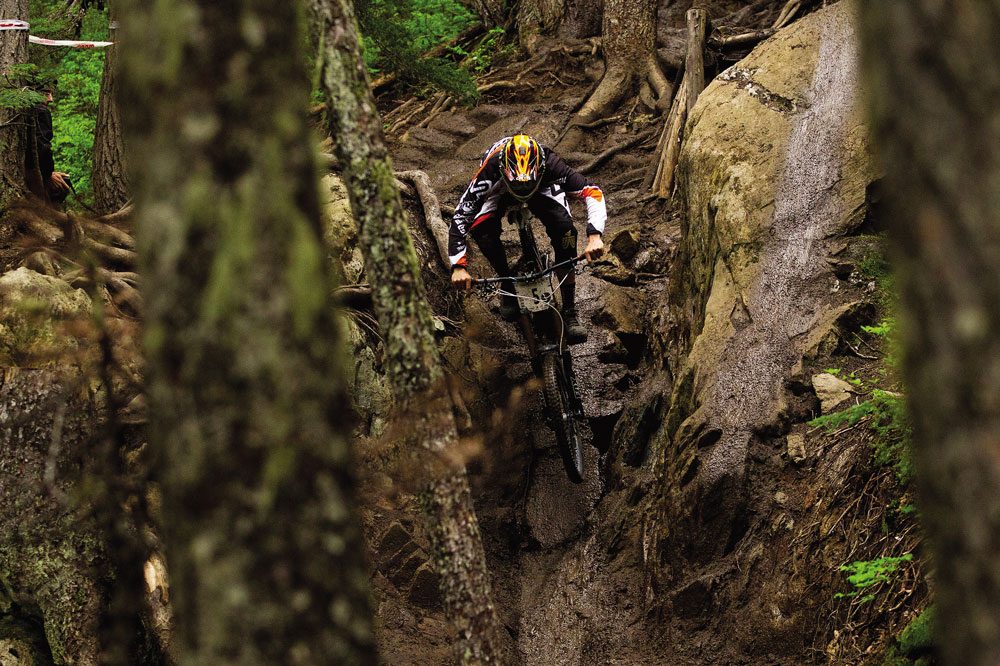
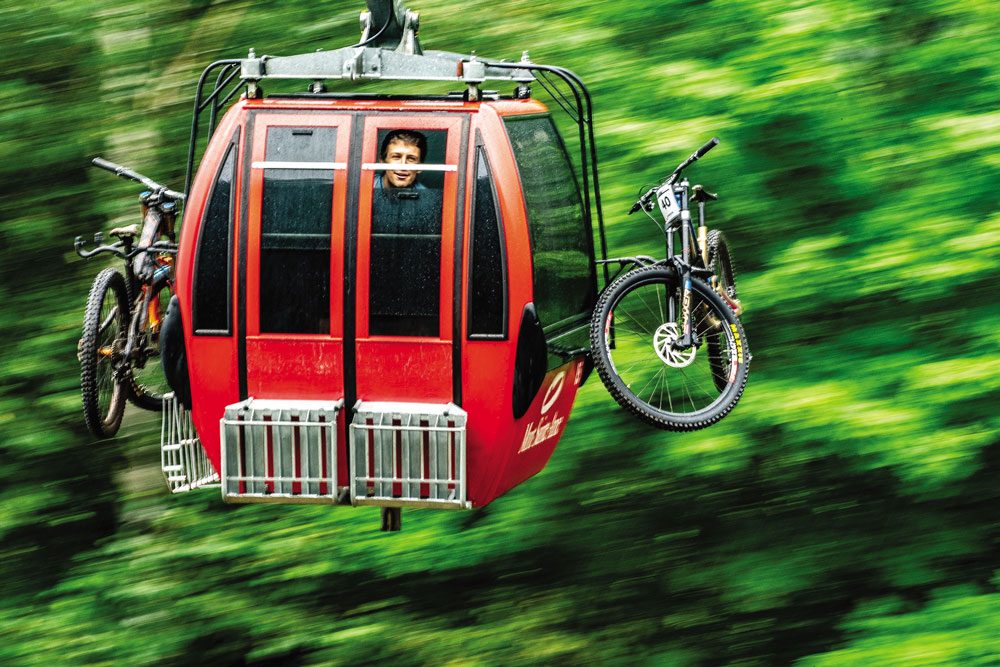
This change of pace seems to suit Sam. The more we talk, the more he seems to relax. He’s reflective on his time as a racer, and the privilege that has been, but also how the reality of being on the road has real downsides. “When you’re with a team, everyone can be in their own bubble and often they don’t really do much. It can actually be quite boring a lot of the time. It’s crazy!”
But he hasn’t always been this way, and he seems to be able to see his own evolution and maturity as racer. “When I was younger, I was more like how I see other younger racers now — it was just racing, racing, racing! Everything had to be absolutely perfect.” He laughs, seeming to sense a bit of irony at what he is saying. “But now I’m old!” I’m a little surprised at just how casual he seems about it all, he just seems to be more realistic. “I just feel like I know what goes into racing — what works and what doesn’t. But actually seeing places differently, that’s what changes when you become a parent. It’s interesting in new ways,” Sam laughs. “Now I’m just looking for the best playgrounds and parks!”
But despite the highs of having his family on the road with him, the challenge any professional athlete faces is that results still matter. So, I asked him if he had achieved what he wanted to this year? “To be honest, my race results weren’t where I wanted them to be. It was pretty frustrating,” Sam admits. “I would get a mechanical or a flat tyre, it was… annoying.” Fort William was one such race. He missed out on qualifying for the main event, a race that is usually one of his favourites and one he performs well on. “I got a flat tyre halfway down…. I missed out on qualifying by half a second.” This was a tough pill to swallow. “I hadn’t been that angry for a long time. We’d driven all this way, I’d been with the family, it was a week of shitty weather, everyone was cooped up in the motorhome, there were midges everywhere, kids couldn’t do anything.” I ask him if having his family there changed how he was able to cope with a disappointing race. “Having the family there changes everything. In the past, if I was at a race and I didn’t do well, I would be thinking, ‘man I wish I was at home’. But, with the family there, it was completely different. It was just like, ‘ah, it doesn’t matter, it’s just part of it’.” This family thing sounds like the ultimate racer’s edge: great support when things are tough and the people you most want to celebrate with when things go well. Like at Mt St Anne, in Canada, where he was back in the top ten: “The high of that whole weekend was really just having the family there with me. It was just the best thing ever.”
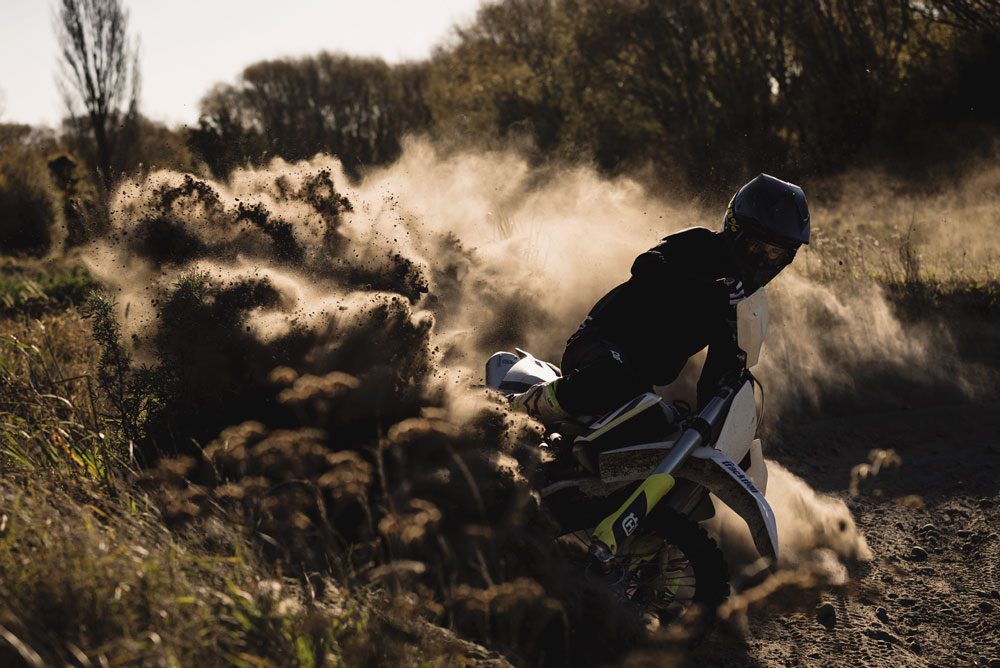
Sam seems to have been able to carve out a career as a racer that is pretty enviable, and the longevity of it all is unique. In fact, just staying healthy in a high risk sport like downhill is a challenge; always balancing risk and reward. “When I was younger, I just wanted to go as fast as I could,” says Sam. “But you figure out pretty quickly that it doesn’t really work well that way. You just can’t ride that way all of the time, ‘cause you just end up crashing.” I ask him if this is, however, just what is required to be at the very top? He agrees. “Those guys [Loic Bruni and Amuary Pierron] just ride at such a high level. The risk is so high. But, if anything happens, when they hit the ground, they’re done, the season’s over. I can ride at that pace too, but it’s risky. You need to be comfortable with it.”
Staying healthy, staying on the bike, and showing up to races year in, year out has helped Sam keep sponsors happy. He has just finished up a contract with Norco, after seven years working together, to explore something new. Now, he’s taking charge of managing his own sponsors and race schedule. This seems like a lot of work to me; I ask him why he’s doing it? “I always wanted to run my own program, and I’m finally getting a chance to do that. I feel like I’m going back to my roots — not like a privateer, I’ll have factory support and I’ll have a good budget — it’s just a simpler operation.” Being on the Norco factory team, Sam has seen it all. It’s big business with big overheads. “In a big team, the team takes everything you make them. The managers get paid because of you; the budget is massive to move a team around. I realised this year, in taking myself on the road, it just doesn’t actually cost that much. But, with a team, you’re spending so much money with hotels, mechanics, managers and different staff. The amount of money that gets blown is unreal. With Norco, about twenty people were involved with the team; mechanics, ex riders, masseuse, other staff, an on-track guy.
They were a Canadian team, so lots of them would go to the race and then fly back to Canada each week. The amount of money that got wasted… I couldn’t believe it. So I just knew I could do something simpler that would still allow me to make it work.”
Sam seems to be confident in his own experience. Confident he’s developed skills he can now use to help navigate the new reality of racing whilst also being a family man. “I’m excited about the direction I’m going in, I really feel I can be in the top 10 for sure. I still believe my riding is at that level. I still feel like I can be on the podium the weekends that the track suits me and I’m feeling good.” But the sponsorship side of things is a steep learning curve. “It was so much easier when I had a manager doing all this! Now it’s way harder. I’m just not used to doing it. I’m so Kiwi! We just don’t say, ‘I need this much money so could you please give it to me?’. We’re more reserved and sort of just end up asking for something, anything. Often, I’ll say a number and sponsors will be come back to me with; ‘we can do more than that — you should really be asking for more!’ So, I’m learning I need to be a bit more cocky really. Sponsors often have more to offer than I think they do. But I like that I’m learning all this.”
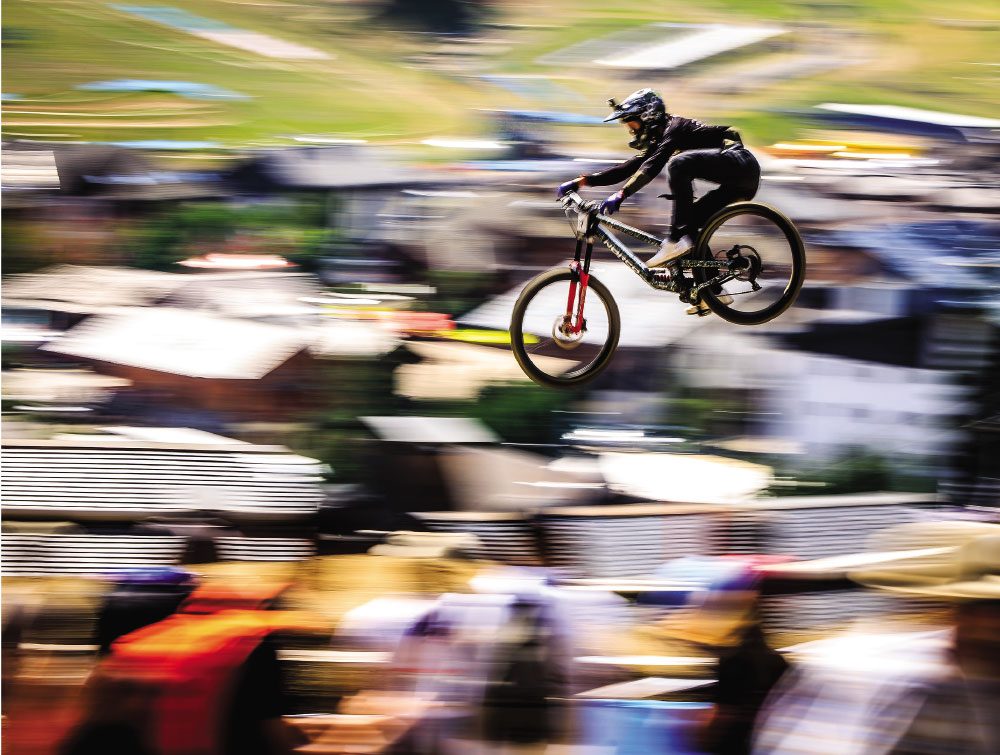
Taking charge of his own program is about creating new opportunities. For example, he’s getting to work directly with the brands he has always wanted to work with, and working with them directly instead of through a manager or a team. “So often I’m hearing the brands say how good it is to be dealing with me directly. They’ll tell me they’ve always wanted to work with me, not this other person or a team I have been associated with. Often, they just want to do a little deal with me directly but they’ve had to negotiate with the whole team. So it’s cool to be able to work more directly with the actual companies and hear this kind of stuff.”
It’s not all plain sailing, though, and even trying to ensure he gets enough support to run the lean operation that he has in mind for next year has challenges. “It’s hard at this time, all the sponsors are tightening up. They’re not selling as much and everyone is overstocked, and everyone’s freaking out, and just taking so long to return calls and emails.” But Sam’s confident it will all come together, and he’ll be back on the circuit next year. He won’t tell me what bike he’s riding just yet, but he’s obviously excited about it. “I’ve pretty much got everything locked in but there are still a couple of things we’re waiting on. In terms of the industry, to be honest, it is probably the worst time to do it.” But he’s enjoying the new challenges of management, and of the conversations he is getting to have. “It’s just great to be able to choose the people I want to work with, and work with the people I like to work with. Everyone that I’m working with is a friend; I’ve worked with them for years and they are fans of me and I feel like I’ll be able to have a long future working with them. I was with Norco for a long time, and a part of me was just thinking, ‘this would be good if it carries on forever’, but in other ways a fresh start is exciting too.”
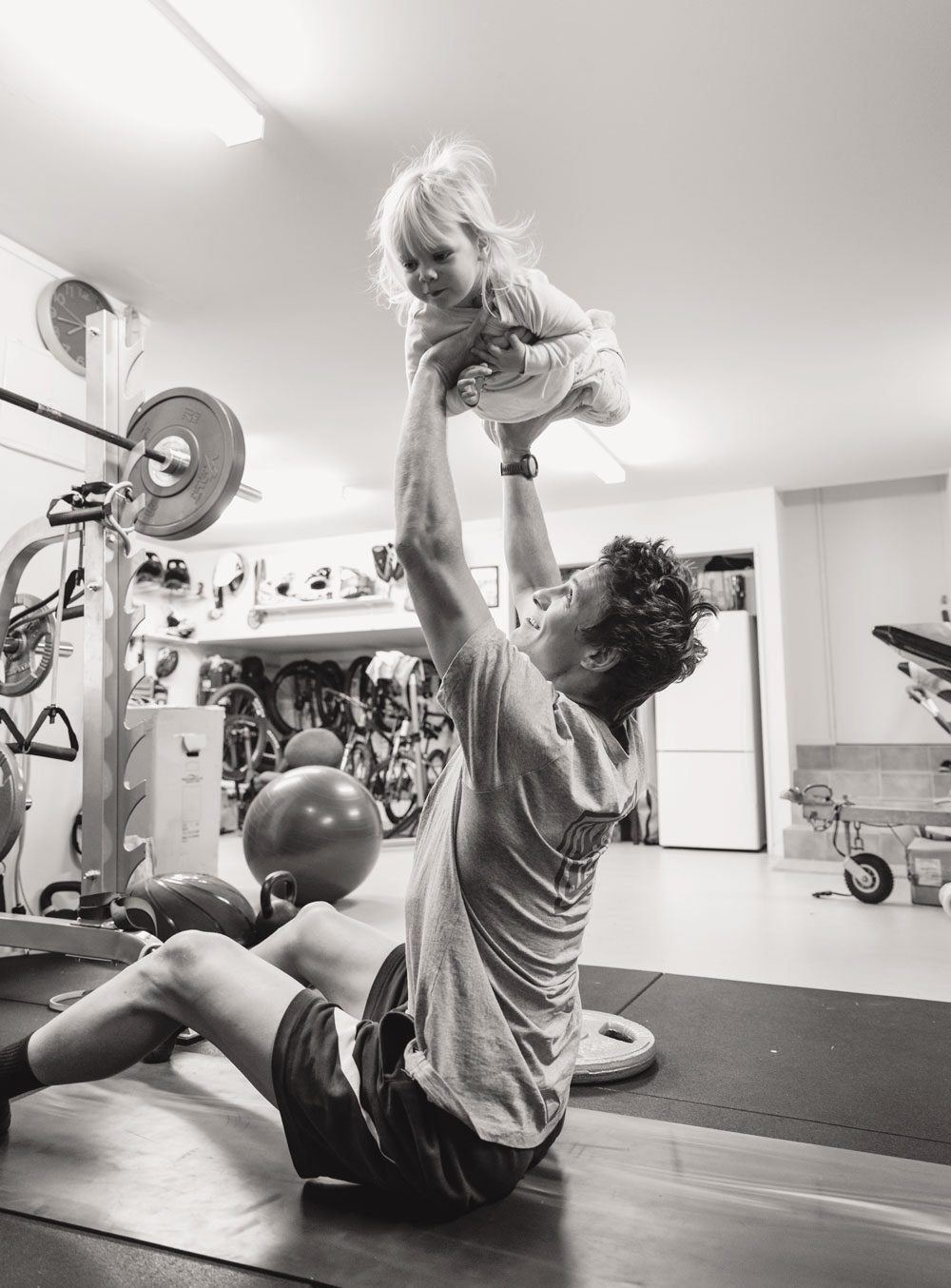
There are other changes on the horizon, too. Not least of all Discovery TV taking over the broadcasting rights to the UCI Mountain Bike World Cup. Something that has a lot of riders, Sam included, curious to see how it all unfolds. It’s a complicated business working with the UCI, and the relationship between the UCI and riders has often been fraught. Plus, there are lots of unknowns. “We don’t even know how many people are going to qualify; how many people they are going to show on TV… It seems like they are trying to suck every cent out of us,” explains Sam, candidly.
On the other hand, Sam has always been a fixture on the Crankworx schedule, something some of the other riders don’t seem to prioritise. The reason is simple; “I’ve just always enjoyed the Crankworx events,” says Sam. “If you go to a UCI World Cup, the organisers don’t really care about you at all. You are the show, but they just aren’t bothered. The Crankworx guys, though — you go to the race, and they do everything for you. They are so supportive of you; they help you out with everything. You email the organiser and ten minutes later you’ve got an answer. They just really take care of the riders.” And the festival-style race schedule appeals to Sam, too. “All the events are so fun. They just pack the events in, too. You do one race one day, and if you do badly in that one race, you’re like, ‘oh well, I’ve got another race tomorrow’. It’s busy, and I like that. At Rotorua this year I had the downhill practice, slalom and pump track all in one day. The people love it. I’ve always told the organisers I’ll race these ‘til I can’t race anymore.”
Right now, however, it’s the off season and, for Sam, this means it’s time off the bike and a different pace of life. “I drop my daughter (Indie) at pre-school, then I take Blake (his son) for a spin in the bike trailer.” Family commitments mean Sam doesn’t have the luxury of training whenever he wants, either, so he’s being more efficient than ever with his time — doing weights in the garage before the children wake up being just one example. But his off season is more than just being off the circuit, its exploring other passions too. “I love hunting and spearfishing and that’s what I love doing when I’m not racing. This time of year I love those things even more than biking… Racing is so intense, but with diving you’ve got to really slow your heart rate right down and be relaxed. Plus, it’s all about just being in another environment. Hunting is the same, you have to be calm.”
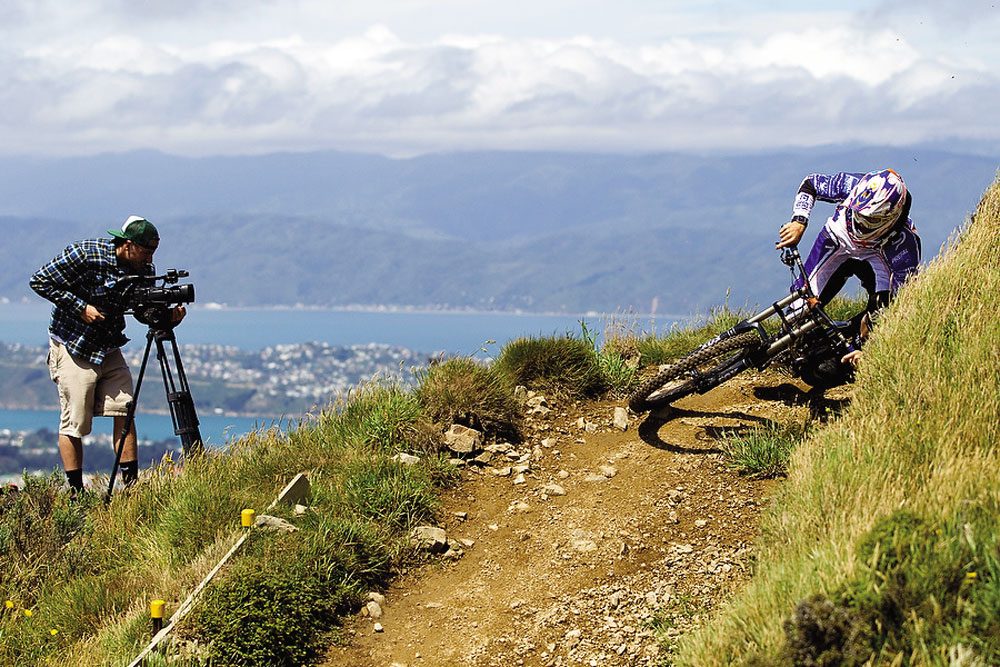
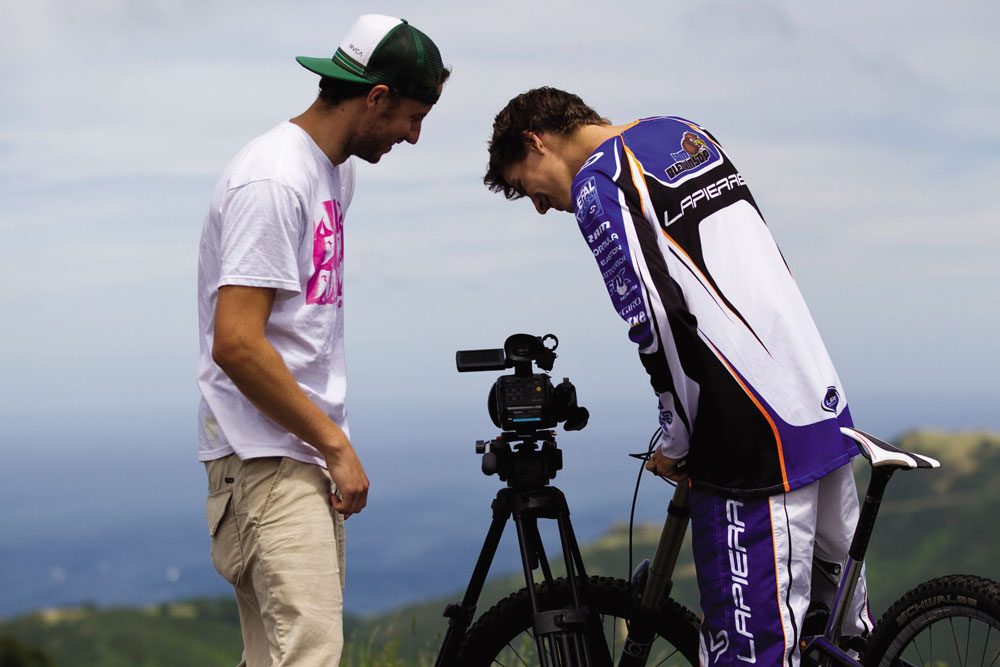
Nineteen years in any career that takes you on the road for six months of every year is a challenge that could wear thin, but it seems to suit Sam just fine. “I can’t stay in one place for too long. I don’t know how people live in one place for so long! After being in Christchurch for seven months, I’m ready to go back to Europe and start racing again. I just – still – love racing. That’s what I realised this year; I just love racing.” I ask him how he’s stayed in the game for so long, and how many other riders he seen come and go, and his answer reminds me of the day I watched him race in Rotorua: “I think it’s just because I enjoy it so much”. We talk about this for a while, and Sam mentions that one thing he’s wondered about is whether his ability to really enjoy life off the bike has helped him enjoy life on the bike even more. “I think, guys who didn’t stay in that long, all they did was ride their bike. I think if you’re just doing that all the time, you’ll get over it. It’s almost like they’ve put too much into it. To be honest, in my off season I hardly ride a bike. I just do other things – hunting, fishing, diving, and spending time with the kids. Just having other things going on aside from racing is so important.”
Sam acknowledges it hasn’t always been this way. Without being arrogant, he seems proud that he’s been able to evolve over the years to approach riding in a more mature way. “When you’re young you need to be on the bike all the time, you need to do that to get the skills and that’s exactly what I did. I just rode my bike every day, did dirt jumps, pushed up to do downhill runs, XC — whatever I could do. I spent every day on my bike, from dawn ‘til dusk. It was all about biking. But now, I know I’ve got those skills, so it’s more about having fun on the bike and enjoying it and not getting burnt out. It’s key to know when to train and when to stop – to avoid getting burnt out with training. It’s a learning thing — and I’m still learning.” He seems genuine. Genuine that he really does still just love riding his bike, but hungry for more too. “I feel like I’ve got a lot more in me. There’s a lot of young kids coming through the local scene, but they don’t seem to be able to beat me yet, so I might as well keep going.”
Might as well.
